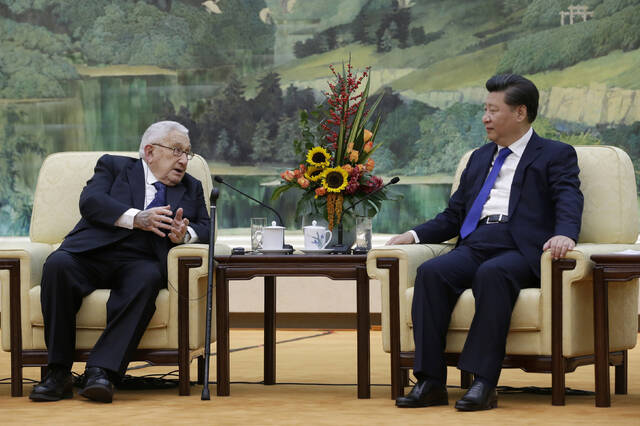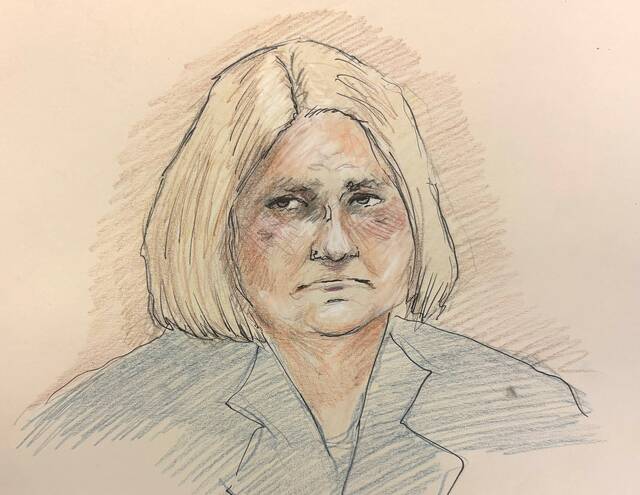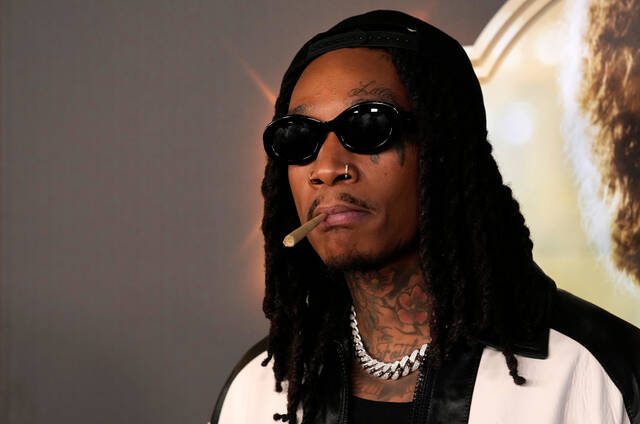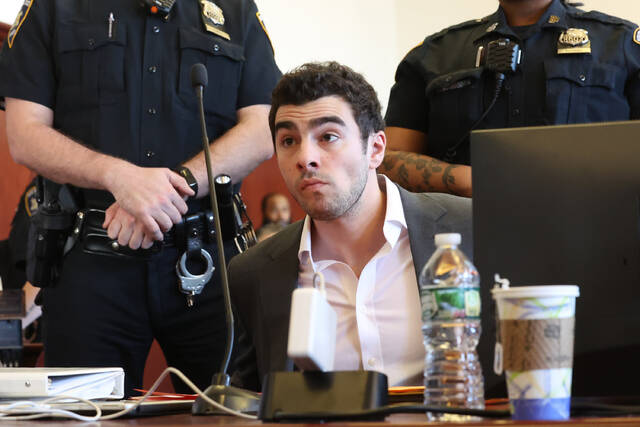Over the years, Henry Kissinger’s trips to Pittsburgh — like his visits elsewhere — reinforced his status as both a global celebrity and polarizing figure, seen by many as a brilliant diplomat and by others as a war criminal.
Either way, he commanded attention.
That was true in 1990 when a crush of TV and radio microphones surrounded him at a Pittsburgh appearance to discuss rapid changes in Eastern Europe as the fall of the Soviet Union approached.
It was also true for speeches he gave in October 2004, as part of what was then the Robert Morris University Pittsburgh Speakers Series, and in 2011, at a speech in Oakland’s Carnegie Music Hall hosted by the American Middle East Institute in Pittsburgh.
He also drew protesters.
During his October 2004 speech before a nearly sold-out Heinz Hall, Kissinger offered a defense of then President Bush’s strategy of preemption. He said terrorist attacks like those that occurred on Sept. 11, three years earlier, took away policymakers’ prerogative to wait for threats to fully materialize or even to first “find out what assessment was right.”
“It is inevitable that any American president will have to try to prevent certain events” rather than waiting for a concrete threat and reacting to it, said Kissinger, who died Wednesday at 100.
Not far from where Kissinger spoke that night, author and columnist Christopher Hitchens, now deceased, screened a movie drawn from his book that described the former diplomat as a war criminal. A dozen protesters holding signs picketed outside Heinz Hall before Kissinger’s remarks.
“The Trials of Henry Kissinger,” an 80-minute film, debuted in 2002 and screened concurrently with Kissinger’s appearance. It was shown in the Harris Theater.
Kissinger served as U.S. Secretary of State during the Nixon and Ford administrations. Those who admired him pointed to his opening relations with China, facilitating a Middle East peace agreement after the 1973 Arab-Israeli war, and brokering an end to the Vietnam War.
His work reaching a ceasefire in Vietnam brought him a Nobel Peace Prize in 1973.
But his critics had a far different view. They argue that Kissinger should have been charged with war crimes for alleged involvement in assassination attempts, genocide in East Timor, and murders across South America and other regions.
In 2011, Kissinger appeared at Carnegie Music Hall in Oakland for a speech hosted by the American Middle East Institute, an independent, non-profit organization, focused on building business, educational and cultural ties between the United States and the Middle East.
During his speech, a heckler seated in the balcony interrupted with a shout, ‘’You don’t deserve a voice,” according to an account from the University of Pittsburgh’s student newspaper, The Pitt News.
The publication’s account of the speech said Kissinger turned to late former Pennsylvania governor and U.S. Attorney General Dick Thornburgh, and remarked, “I certainly don’t leave them indifferent.”
Members of Pittsburghers for World Peace and the Antiwar Committee of the Thomas Merton Center had vowed to protest the visit.
“Instead of being given an invitation to speak, Henry Kissinger should be given an arrest warrant for his role in war crimes that span nearly a decade,” said Pete Shell, organizer with Thomas Merton Center’s antiwar committee, said in a statement released by the group before the appearance.
As word of his passing spread, Kissinger received praised from world leaders as a dependable and skilled diplomat and defender of American interests, while also drawing criticism on social media and elsewhere.
Robert Ross, a Point Park University professor who joined protesters outside Kissinger’s 2011 speech in Oakland, said by email Thursday that he was struck then by the same thought he has now knowing that Kissinger is gone.
“I can’t believe so many people are honoring this guy who is directly responsible for the deaths of so many thousands of people,” he said.








